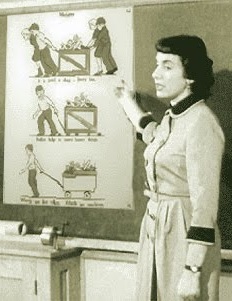Teacher return questioned
 The Australian Primary Principals Association (APPA) warns bringing back retired teachers may not be enough to ensure the school year runs smoothly.
The Australian Primary Principals Association (APPA) warns bringing back retired teachers may not be enough to ensure the school year runs smoothly.
Several states are moving ahead with plans to ask retired teachers and trainees to fill gaps in the school workforce left by those isolating with COVID.
However, APPA President Malcolm Elliott says some schools will still have to close.
“The hope is that people who are doing initial teacher education might be available … to fill gaps in the supply of teachers, that retired teachers may be willing to put up their hand and return to schools to do some work,” he told reporters this week.
“I spoke with a retired teacher yesterday.
“He was saying to me; ‘Look, I would be happy to go back but it would have to be on my terms — I don't want to work five days a week anymore. I might work two or three days a week and it'll have to be somewhere close to home’.”
But Mr Elliott said the APPA is keen for schools to return to face-to-face learning.
“We as an association really strongly favour children coming back to school,” he said.
However, he expects looming levels of infection to lead to staffing shortages.
“We've got about 300,000 teachers in Australia, so if 10 per cent of those people were infected at any one stage, obviously, there's 30,000 teachers we've got to find,” he said.
“We've had staff shortages throughout Australia now for a long time and some people would say that we've actually been facing a staffing crisis, particularly in rural, regional and remote — and in some urban — settings.
“[If] we can say to people doing initial teacher education; ‘It may be that in times of need, you will have an opportunity to work in a school nearby, or you might have an opportunity to go to a rural or remote location to assist in the school,’ — that would be a really good thing,” he said.
“It would also meet some of the questions that we have as an association about the training of teachers. We want to see them spend more time in schools than they currently do.”
Questions have also been asked about whether air purifiers to be rolled out in classrooms will be powerful enough to filter virus particles.








 Print
Print